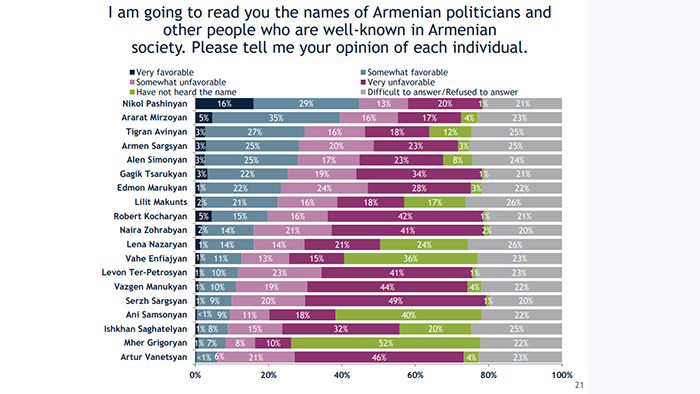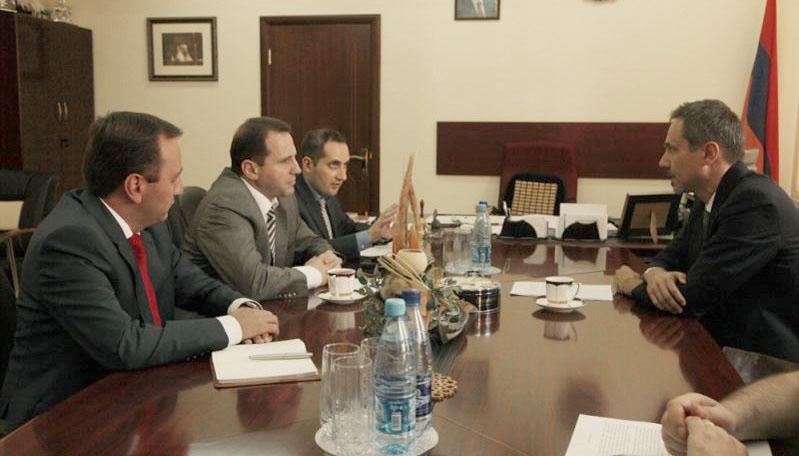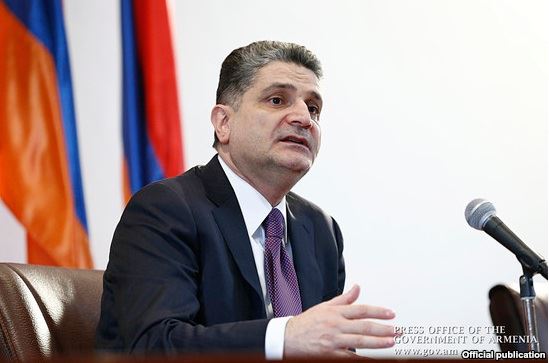The International Republican Institute (IRI) last week, published its latest periodic survey on Armenia. It should be noted that the IRI is partially funded by the American government and as the name indicates, it is closely associated with the Republican Party. Similar to the National Democratic Institute, which leans towards the Democratic Party.
The IRI, after the Velvet Revolution of 2018, has paid close attention to the internal events in Armenia. It has conducted comprehensive public opinion polls, where it tries to not only summarize the public’s opinion on electoral processes, but also on social, economic, judicial, emigration and other issues.
The institute, unlike traditional Armenian surveys, makes public its underlying statistics and methodology, including the demographics of participants by age, sex, economic status, and place of residence. All this comes to inspire greater confidence that the survey is conducted scientifically.
In the survey, right before the parliamentary elections, the approval ratings of various politicians and parties receiving the most attention is highlighted. Nikol Pashinyan continues to be the highest-ranking politician in Armenia, even though his approval rating has seen some decline in recent months. According to the results published by the IRI in March, the positive attitude towards the Prime Minister was at 55%, it currently stands at 45%. As it relates to the parties, the approval rating of the Civil Contract party has dropped from 33% to 26%. These figures should be worrisome for any political party in power. However, if we look at the other parties, we see that they all have a rating of 1% or less.
One of the remarkable findings of the survey is that the disapproval of the three former presidents of Armenia, is much higher than the people’s support for them. While 49% of the public dislike Serzh Sargsyan, 42% dislike Robert Kocharyan and 41% dislike Levon Ter-Petrosyan. Nikol Pashinyan’s counter-rating is at 20%.
Other data from the survey include citizens’ attitudes towards emigration. About 75% stated that they have no plans to leave Armenia permanently and 22% answered ‘yes’ if the possibility arises.
According to the survey participants, the main challenges facing the country are the internal political instability, the fate of the prisoners of war, the economic situation and unemployment.
Notwithstanding the aftermath of the 44-day war, 75% of the population continues to trust the Armenian Armed Forces.
The main failure of the revolutionary government has been the implementation of reforms within the judiciary. This is reflected in the survey where only 20% of the respondents expressed confidence in the courts. Moreover, 40% believe that the Armenian judiciary is still controlled by the previous government, while 39% think that the judiciary is under the influence of the current government. Thus, about 80% of citizens question the independence of the judiciary, which is one of the most important pillars in establishing a democratic society and state.
According to 43% of respondents, Armenia is on the right track. About 20% are in disagreement with this view.
Finally, when it comes to the COVID-19 pandemic, the vast majority of citizens, almost 71%, do not want to be vaccinated, which means that not enough explanatory and educational work is being done to overcome the vaccine hesitancy to defeat the virus.
The impact of all this data will be known soon in the upcoming snap elections to be held in three weeks on June 20th.
“MASSIS”










